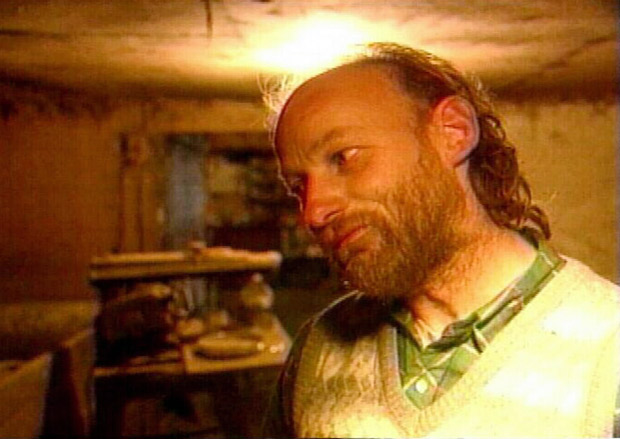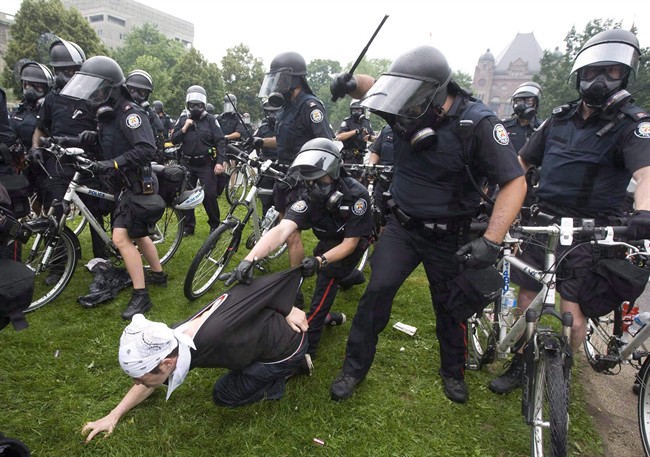Watch: An in-depth interview with Ian McPhail.

This project began with profiling each officer of Parliament in an eight-part series. It’s now expanded to include other federal watchdogs who, even though they are not officers of Parliament, have a vital role to play in holding the government accountable. Read the introduction and series via the links.
The RCMP has suffered black eyes.
A rash of harassment allegations, a number of Tasering incidents and in-custody deaths, accusations of fraud and nepotism under a former commissioner, and questions of political bias against a safe injection site, not to mention the force’s decision to seize firearms during the 2013 Alberta floods and its role in the Robert Pickton investigation.
Each of those cases has come to light since 2002. Harassment allegations continue. It’s not unreasonable to believe they’ve had a negative effect on the reputation of Canada’s national police force.
The man in charge of holding the national police force to account pointed outside the controversies, however, when asked to identify the biggest threat to the reputation of the RCMP.
IN DEPTH: An interview series with Canada’s 8 independent watchdogs
“The public is less willing to accept decisions on faith,” Ian McPhail said in a recent interview. “We’ve seen what could be described, not so much in Canada but in other countries, a crisis of confidence in traditional leadership groups, and that’s reflected in attitudes toward the RCMP.”
- Life in the forest: How Stanley Park’s longest resident survived a changing landscape
- ‘Love at first sight’: Snow leopard at Toronto Zoo pregnant for 1st time
- Carbon rebate labelling in bank deposits fuelling confusion, minister says
- Buzz kill? Gen Z less interested in coffee than older Canadians, survey shows
In a “fairly general way,” he said, the big challenge facing the RCMP is “that you cannot count on traditional deference to authority.”
As chair of the Commission for Public Complaints Against the RCMP, McPhail is tasked with overseeing the force’s conduct in the public interest and, by extension, building and maintaining the fragile public trust in the force.
After close to half a decade observing, investigating and reporting on the RCMP, he says public support for the national police force is higher now than a few years ago.
That impression depends upon which polls one looks at.
A January 2013 poll from Ipsos Reid found public confidence in the force had dropped over the five previous years, with fewer than two-thirds of respondents saying they felt the RCMP was able to resolve the harassment issue.
IN DEPTH: The Hounds of Parliament series
That poll showed only 46 per cent of Canadians felt senior leadership in the force is doing either a “good” or “great” job, down from 61 per cent in 2007.
An Angus Reid survey released in May, however, found public confidence in the force was climbing back up, reaching 67 per cent from a dismal 38 per cent in 2012.
He conceded, however, the force should still aim to increase the level of support it enjoys from the public, but not in a manner more significant than other organizations or bodies.
“No organization, and certainly not the RCMP can be content with trying to maintain the status quo,” he said, sitting in a deep, upholstered armchair in his vast office. “You have to be engaged in a continuous process of re-examination of your policies, your personnel.”
Giving up a law career
McPhail has headed the commission since January 2010, although he only recently shed the word “interim” from his title.
In July, when McPhail became the chair of the complaints commission in earnest, he had to make some significant changes to his life.
By law, the commission chair must live in Ottawa and work full time as chair. Although he’d effectively held the position for years, Toronto remained his primary home until this past fall, and he continued his law practice — a career that had become the subject of much scrutiny when he was first selected to head the commission.
McPhail’s practice was in estate law where, over the nearly four decades since opening a firm, he became intimately familiar with wills and real estate deals.
When his appointment was announced, many focused on that work and wondered where they might find his experience in criminal law. They wouldn’t.
READ MORE: Gag order to be imposed on new RCMP transparency office
Critics said he wasn’t up to the job, that without a background in criminal law he wouldn’t be able to push the envelope enough or loom large enough to stand up to the mighty RCMP. They claimed that, despite chairing three Ontario government bodies, he was flying blind in a critical position. They said the RCMP would have a field day with him.
Reflecting on that time, McPhail recalled something a friend of his had said:
“Had you had a background as a Crown attorney, you would have been seen as biased in favour of the police. Had you had a background as a defence lawyer, you would have been seen as being biased against the police.”
Considering that no-win situation, McPhail kept his head down and focused on the experience he had and in which he was confident — chairing a tribunal, an agency and a commission, each in the name of public interest.
“I’ve always had a strong interest in public policy issues,” he said, pointing to his time at TVOntario, the Alcohol and Gaming Corporation and the Environmental Review Tribunal. “So when this opportunity arose, I can tell you I jumped at it.”
Criticism, however, continued.
Last year, McPhail’s office released its report following on the claims of sexual harassment. His office’s investigation found the force was not displaying a systemic problem of harassment within the force. There was a problem with bullying, the report said.
Critics accused the watchdog of whitewashing the issue, of ignoring the hundreds of women who came forward with allegations.
In 2012, he was again criticized for all but exonerating the RCMP’s conduct during the violent G8 and G20 summits two years earlier.
The critics also said the report had conflicting results; on one hand the planning was robust and fulsome while on the other insufficient planning was to blame for the RCMP’s involvement in the controversial “kettling” tactic used on protestors.
Affording an outlet for complainants
In this capacity, he offers a sort of tribunal for anybody who believes an RCMP officer has wronged them or someone else.
Without this office and those of his provincial counterparts, McPhail said, the only public recourse available to complain about the RCMP’s conduct would be the courts.
“That would be expensive and cumbersome,” he said. “As a result, most complaints simply wouldn’t be pursued.”
Reports about private complaints are not published. It is McPhail’s prerogative, however, to launch his own investigations, and he often receives requests from ministers, provinces and RCMP Commissioner Bob Paulson, for example.
Those reports — which include reviews into the RCMP’s conduct at the G8 and G20 summits in Ontario and the force’s involvement in the Tasering death of Robert Dziekanski, for example — are published.
Despite the criticism of some reports, McPhail pointed to them when asked whether all the skepticism around his appointment was warranted.
“We were the first to investigate the issue of harassment within the RCMP,” he said. “We set down markers.”
IN DEPTH: The Robert Pickton File
Hundreds of female Mounties have, over the past few years, claimed they were the targets of discrimination, bullying or harassment from their male colleagues.
Pressure from the public as well as the government on top of, McPhail added, some determination within the RCMP to fix the issue, eventually led to Paulson’s “gender and respect” plan.
That plan, released in 2013, contained 37 actions the commissioner said the force would take in an effort to address the swelling number of harassment claims involving the force.
The women who came out with their stories claimed the behaviour they experienced was systemic. McPhail’s found no such proof after investigating more than 700 complaints of Mounties mistreating female colleagues between 2005 and 2011.
Instead, his investigation found “overwhelmingly the issue had been bullying.”
A proposed class-action suit suggests the issue is ongoing. McPhail has pledged a follow-up to measure any improvements.
On uneven ground
The commission’s mandate, overseeing the actions of the country’s national police force, may seem intimidating when looking at the numbers.
McPhail is handling a staff of roughly 66 people and a budget of $10 million. The national police force, meanwhile, employs more than 28,000 people and has a budget exceeding $2.7 billion.
The vast difference, McPhail said, only means he has to prioritize.
“But I think that’s true for any organization,” he said. “You can’t do everything.”
In its current form, the commission is obliged to investigate all complaints.
The Conservatives, however, are revamping the commission in a bid to help restore public confidence in the RCMP.
READ MORE: Harassment in RCMP fostered by male-dominance and paramilitary culture, Paulson says
The new office, which will be called the Civilian Review and Complaints Commission for the RCMP, will, in theory, boast increased investigative powers and allow the office to dismiss complaints deemed lodged in bad faith or of “no consequence.”
The new legislation under which the commission will operate, passed in June 2013 but not yet in force, will grant access to more classified information — a privilege that comes with a gag order.
Beyond ostensibly affording McPhail and his colleagues the ability to get their hands on more documents, the legislation — whenever it becomes operational — will enable him to conduct systemic reviews into issues such as the allegations of harassment.
Looking forward to the new office, McPhail said he has identified a group within the commission whose focus will be on such systemic reviews, and has “upgraded” the quality and number of investigators.
With bolstered powers and a reinforced mandate to tackle systemic issues, which McPhail said he is particularly looking forward, the commission’s philosophy will not hinge on determining culpability, he said.
“Our goal is not to find fault, but more to find areas that can be improved,” he said. “And so by holding the RCMP to account, by providing an independent analysis and review of different policies, different activities, I think we — well, I know we can play a role in improving a very important institution in our country.”














Comments